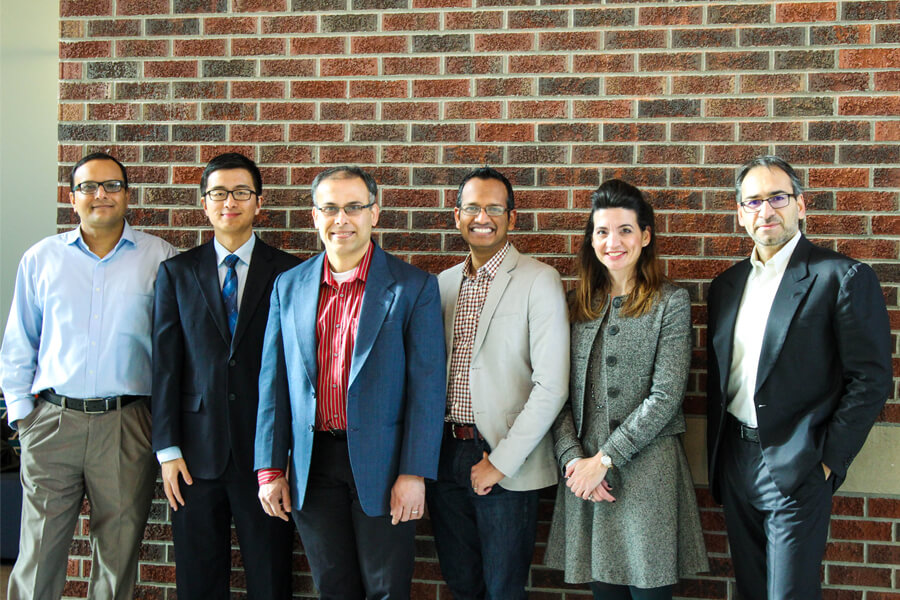Center for Resilient Infrastructures, Systems, and Processes (CRISP) to host NSF Grand Challenges Workshop

The program will feature three keynote speakers and will focus on resilient system design and the broad research and translational challenges needed to make infrastructures resilient to natural failures.
There will be three themes in the workshop: resilience in cyber, cyber-physical and socio-technical systems. These topics tie in to Purdue’s 150th anniversary with the Giant Leaps themes of “Giant Leaps in Artificial Intelligence, Algorithms and Automation” and “Giant Leaps Toward a Sustainable Economy and Planet.”
The workshop will bring together about 30 external participants from academia, industry, government labs and funding agencies, with the Purdue community working on different aspects of resilience. There will be panel discussions, vision talks and breakout sessions on each of the theme’s topics. Three vision articles will result from the workshop, laying out the state-of-the-art and the near- to medium-term research challenges in the field for each of the three themes.
“The objective of the workshop is to draw from the technical contributions made by the communities, put them in the context of evolving technological changes and identify broad-based topic areas where resilience work is both needed and likely to have high impact,” says Saurabh Bagchi, director of CRISP and professor of Electrical and Computer Engineering. The NSF communities that are natural fits within this workshop are Computer Systems Research (CSR), Cyber Physical Systems (CPS), Software and Hardware Foundations (SHF), Smart and Connected Communities (S&CC), and Engineering Design and System Engineering (EDSE).
The event will take place at the Purdue Recreational Sports Center and will include the following keynote speakers:
-
Cyber Resilience: “Uncovering What Is Unusual in Multi-Dimensional Space.”
Jiawei Han, the Abel Bliss Professor of Engineering, Department of Computer Science, University of Illinois at Urbana-Champaign. -
Cyber-Physical Resilience: “Platforms for At-scale Experiments.”
Ashutosh Sabharwal, Professor of Electrical and Computer Engineering, Rice University. -
Socio-Technical Resilience: “Mitigation and Resilience Save.”
Adam Rose, Research Professor, School of Public Policy, University of Southern California.
Milind Kulkarni, associate director of CRISP and associate professor of Electrical and Computer Engineering, will lead the theme of Cyber Resilience at the workshop. “We are focusing both on design principles in hardware and software so that systems are resilient from the beginning as well as runtime techniques to detect and deal with failures,” he says.
Jitesh Panchal, an associate director of CRISP and associate professor of Mechanical Engineering says the workshop will bring together diverse communities with the common theme of resilience and will lead to discussion of ideas that cross boundaries and are application-specific.
Felix Lin, assistant professor of Electrical and Computer Engineering, will lead the theme of Cyber-Physical System Resilience at the workshop and Konstantina (Nadia) Gkritza, associate professor of Civil Engineering and Agricultural and Biological Engineering, will lead the theme of Socio-Technical System Resilience.
Gesualdo Scutari, the Thomas and Jane Schmidt Rising Star Associate Professor of Industrial Engineering, is organizing a poster session for students in the Purdue community to showcase their latest results to the external visitors. Winning posters will be awarded at the workshop banquet.
The workshop is made possible through funding by the National Science Foundation, Award #1845192.
